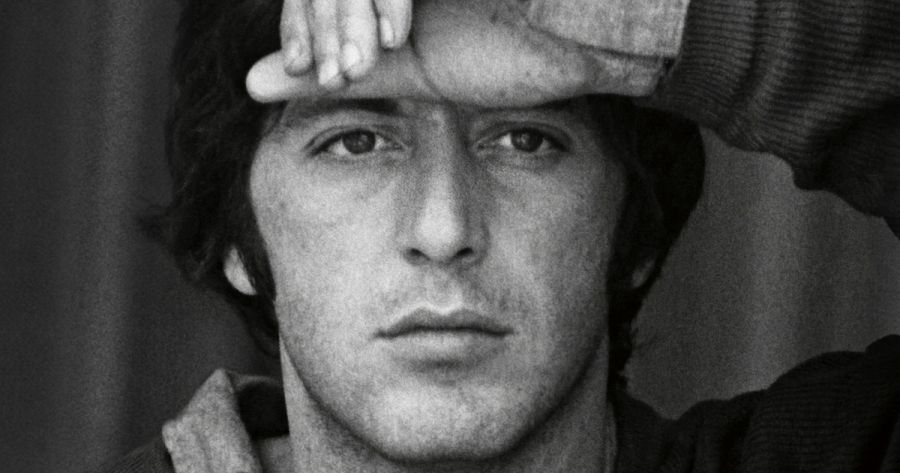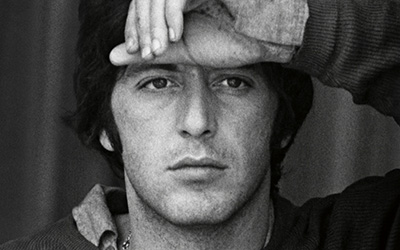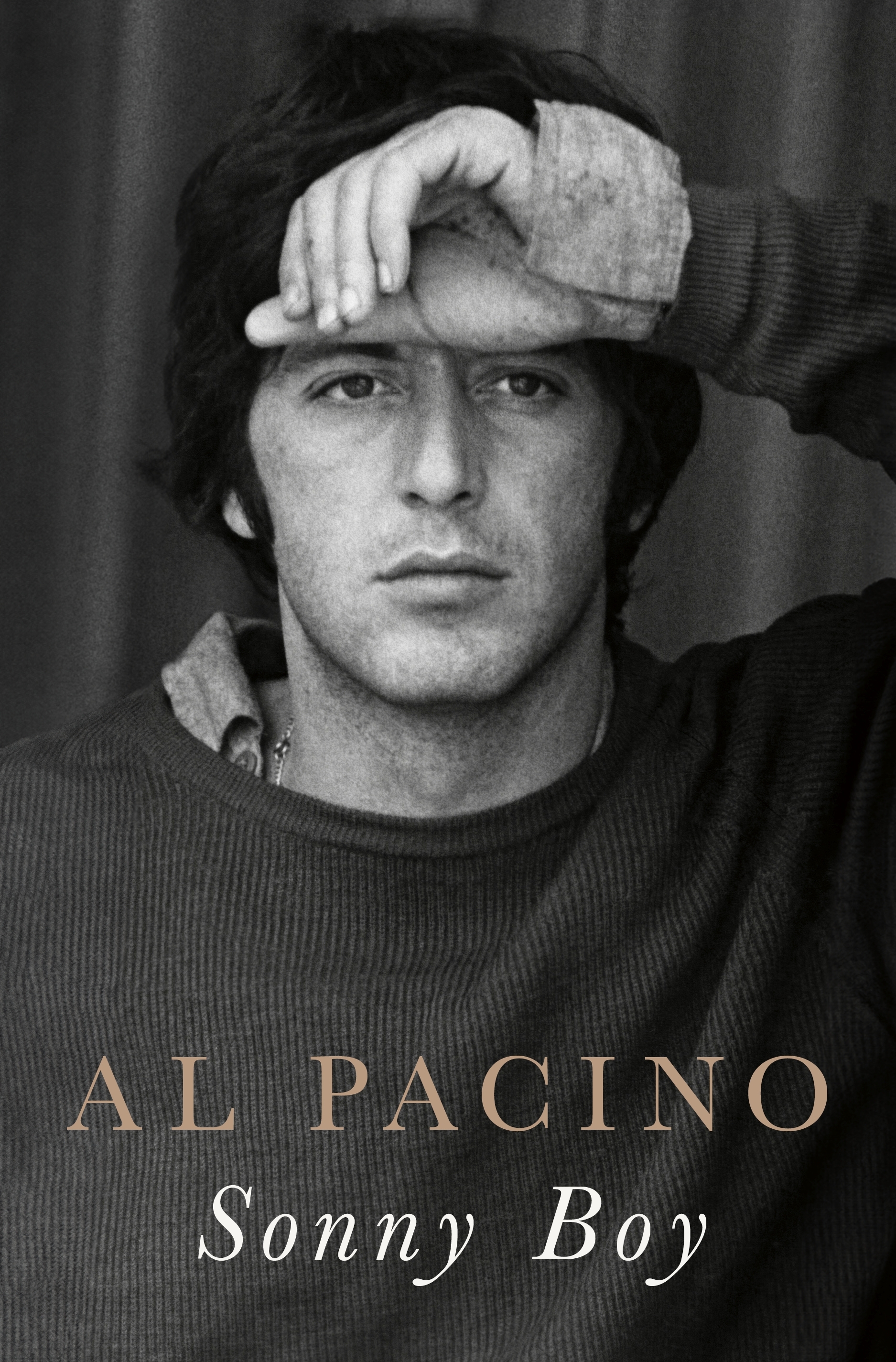
- Free Article: No
- Contents Category: Memoir
- Review Article: Yes
- Article Title: Universal Pacino
- Article Subtitle: The heartfelt memoirs of a theatre tragic
- Online Only: No
- Custom Highlight Text:
You can’t tell the story of American cinema without Al Pacino, but it has taken him eighty-four years to get around to telling his own. Plenty of celebrities have put pen to paper in an effort to enshrine their life story well before becoming an octogenarian, but Sonny Boy, Pacino’s delightfully ramshackle and deeply heartfelt memoir, instantly benefits from feeling like a full, close-to-finished story. ‘I’m a man who has limited time left,’ he says, explaining his desire to share parts of himself that his public persona might have never fully conveyed, things that slipped through the cracks in an otherwise highly visible and well-documented life.
- Featured Image (400px * 250px):

- Alt Tag (Featured Image): Jordan Prosser reviews ‘Sonny Boy: A memoir’ by Al Pacino
- Book 1 Title: Sonny Boy
- Book 1 Subtitle: A memoir
- Book 1 Biblio: Century, $55 hb, 370 pp
- Book 1 Cover Small (400 x 600):

- Book 1 Cover (800 x 1200):

- Book 1 Readings Link: https://www.readings.com.au/product/9781529912623/sonny-boy--al-pacino--2024--9781529912623#rac:jokjjzr6ly9m
Pacino’s coming-of-age stories benefit from his knack of compressing time to make clean visual connections. After seeing a gun with a ‘pearl-white handle’ on his father’s waist at the age of four, Pacino immediately flashes forward to the 1990s: ‘Years later, when I played a cop in the film Heat, my character carried a gun with a handle like that.’ After his mother attempts suicide and is carried out of their building on a stretcher, Pacino leaps ahead to the filming of Dog Day Afternoon (1975) and how the sight of his co-star John Cazale on a similar stretcher took him right back to that image of his mother. Even as we learn about Alberto James Pacino the child, Al Pacino the icon is waiting in the wings, never too far from the reader’s mind.
These halcyon days with Petey, Bruce, and Cliffy come to a sobering end: ‘I made it out alive, and they didn’t,’ Pacino tells us, a miracle he attributes to his mother, who ‘parried me away from … the needle, that lethal delight called heroin that killed my three closest friends’. These young men, now frozen in time, remain the yardstick against which Pacino measures all his relationships in later life – after clicking with Johnny Depp on the set of Donnie Brasco (1997), he refers to him as his ‘adult Cliffy’.
But Rose Pacino was only partly responsible for setting young Alberto on the straight and narrow: the rest was Anton Chekhov. After catching a touring production of The Seagull (‘it just hit me like a lightning bolt out of the clear blue sky’), Pacino throws himself into the off-Broadway scene of the 1960s, living on fifteen-cent beers and ‘saltine crackers with ketchup in the middle’, performing in friends’ apartments on West Seventy-Second Street, where ‘the space was so small that as I was smoking, in character, a woman from the audience reached in and gave me an ashtray’. Of course, off-Broadway leads to Broadway, which leads to representation with the legendary manager-producer Marty Bregman, which leads to lunch dates with Francis Ford Coppola, and soon enough Sonny Boy catches up with the legacy of the man who wrote it.
Those in search of explosive Hollywood scandal might come away from Sonny Boy mildly disappointed. Pacino is vague and civil regarding past paramours such as Jill Clayburgh, Kathleen Quinlan, and Diane Keaton, and strictly professional about his myriad collaborators. The closest he comes to an outright indictment of one of his past projects is William Friedkin’s Cruising (1980), a detective thriller set in New York’s gay-leather scene. Pacino labels it ‘an exploitative film’, and one he never accepted a pay cheque for, instead putting the money into a charitable trust.
 Al Pacino and James Caan (photograph by Gotfryd Bernard via Wikimedia Commons)
Al Pacino and James Caan (photograph by Gotfryd Bernard via Wikimedia Commons)
Mostly, Pacino saves his scorn for his own pride and stubbornness, his ‘vain impulses and stupid ego’ (which nearly cost him the role of Michael Corleone in The Godfather). Sonny Boy is a strictly subjective exercise, freewheeling and confessional, like the ramblings of a Broadway barfly – or perhaps more accurately, a lengthy one-man show the young Pacino might have workshopped in his early days at the Actors Studio, birthplace of the oft-maligned school of Method acting (which Pacino goes to great pains to defend, semi-convincingly).
Sonny Boy’s most revealing celebrity insights concern Pacino’s ever-turbulent finances ($400,000 a year on landscaping?), with one of the book’s funniest sequences recounting Diane Keaton berating an entertainment lawyer while labelling then-boyfriend Pacino a financial ‘ignoramus’ who needed constant supervision in these matters. The low point of Pacino’s career is widely regarded as the Adam Sandler vehicle Jack & Jill (2011), but his involvement makes a lot more sense once you learn that his accountant was jailed for running a Ponzi scheme using Pacino’s money. ‘There’s almost nothing worse for a famous person,’ he writes, ‘there’s being dead, and then there’s being broke.’
What the book lacks in salacious showbiz gossip it makes up for in full-throated passion for both the craft of acting and Pacino’s first love, the stage. His writing is never more alive than when he is talking about ‘the prism of acting’; he calls actors ‘prophets and seers’ and describes performing as an ‘exorcism’ through which he can access ‘the living spirit of energy’.
And then, one night, onstage, just like that, it happened. The power of expression was revealed to me, in a way it never had before … I found that there was more to me, a feeling that I belonged to a whole world and not just to one place … All of a sudden, in that moment, I was universal.
Whenever Pacino’s career hit a bump, he fell back into the arms of theatre, self-funding and directing experimental adaptations like Looking for Richard (1996), Chinese Coffee (2000), and Wilde Salomé (2011), to ‘satisfy [his] own artistic urges’. Despite critics pronouncing Scarface dead on arrival in 1983 – prompting Pacino’s four-year semi-retirement from film – it is one review from an early production of Richard III that seems to haunt him to this day: ‘Pacino sets Shakespeare back 50 years in this country.’
More than is even the case with Chekhov or Shakespeare, Pacino seems most eager to return to those early days with Petey, Bruce, and Cliffy, and it is telling that he recounts their time rambling around the South Bronx with as much, if not more, fondness as he does his epoch-defining films. This nostalgic urge was no doubt crystallised by a near-death experience during the Covid-19 pandemic (Pacino assures us there is ‘nothing out there’ on the other side), but he admits that now, at eighty-four, he ‘can’t stop going back to those early days’. Sonny Boy is less a document of film history than it is the personal journal of a man taking stock of his ‘ravaged life’, where he came from, and how it all led to the ‘outsize reality’ he has occupied for more than half a century – and the outsize role he holds in our cultural consciousness. Pacino’s work will endure long after he is gone, but what of the tenement communities of the South Bronx in the 1940s? ‘All that survives of that place, that era, that frame of mind are these stories,’ writes Pacino. ‘That’s the reason I wrote this book. I want to go home.’


Comments powered by CComment